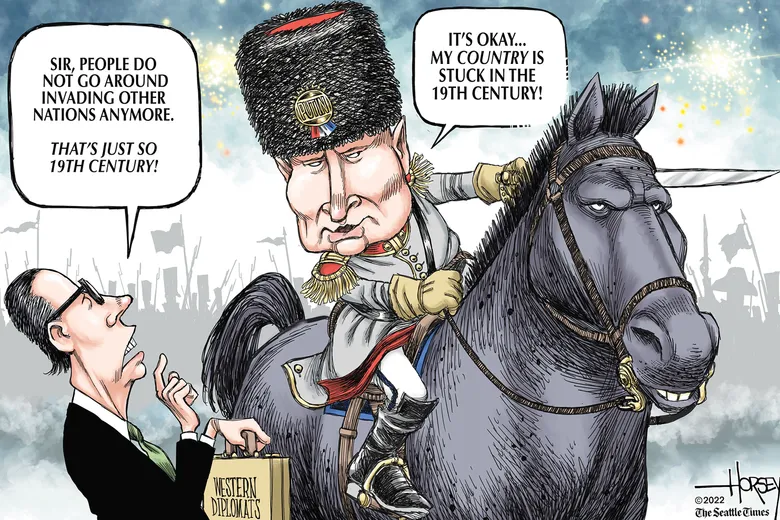Italy at War, 1935-1943

Italian and German soldiers in Yugoslavia, 1943
Italy's Fascist Party, founded in Milan, March 23, 1919 by Benito Mussolini, a former teacher, Socialist agitator and war veteran. Mussolini insisted that Italy abandon its wartime neutrality. Mussolini's black shirted students, bohemians and war veterans were used to rough up Socialist/Communists activists, these activities were recounted in Bertolucci's film, 1900. The Italian ruling classes co-opted Mussolini into the deputy premiership, expecting they would govern Italy and expecting Mussolini to be just a figurehead.
Fascist strength in northern towns prompted King Victor Emmanuel III to invite Mussolini to form a government in October 1922. Throughout the Fascist period, the Royal armed forces, the Catholic Church and the monarchy remained intact. These established forces were a check on Mussolini's desires. The Fascist Grand Council with a 300,000 man black-shirted militia Milizia Volontaria per la Sicurezza ensured war veterans were prominent.
Italy was a backward peasant country with one fifth of Germany's and one half of Japan's industrial potential. in 1923 the Italian navy bombarded and occupied Corfu due to the murder of 4 Italians resolving a Greece/Albania border dispute. Italy withdrew troops on being threatened by Britain. Italy fumed over Fiume with Croat and Macedonian allies ardently supported. During the 1920s Italy spread out from Tripolitania to conquer Libya. Desert concentration camps in Libya and Somaliland settled guerrilla activity. Hitler and Mussolini met in Venice June 14, 1934, despite this meeting, Mussolini compared Hitler to a badly played record player. Hitler expected a free hand in Austria, murdering Dollfuss, whose wife and children were staying with Mussolini, alarming. Mussolini regarded Hitler as one of the SturmAbteilung sexual degenerates. The SA leaders were murdered by Hitler shortly afterwards. in 1935 the Stresa Front was signed by Britain, France and Italy.
Mussolini expected the Stresa Front gave him freedom of movement on Abyssinia, he launched his attack from Eritrea and Somaliland. Mussolini invaded Abyssinia believing Britain cared nothing about this wild mountainous country, this was the Italian quest for empire. The 100,000 troops that crossed from Eritrea, October 1935 was condemned by 50 members of the League of Nations. The Suez Canal was closed to Italian shipping. Mussolini intensified the Abyssinian campaign by introducing chemical weapons and a new commander General Badoglio. Italy declared victory in Abyssinia within 7 months, however, local resistance continued for many years. Mussolini declared support for the Nationalist side in Spain's Civil War. Mussolini wanted Franco's support for free passage through to Spanish Morocco and Italian North African interests. Italy sent ships, aircraft, 50,000 Fascist militia and regular Italian army troops masquerading as volunteers. March 1937 Italy was defeated at the battle of Guadaljara. Italy reduced its armed forces and concentrated on submarine warfare in the Mediterranean. In September 1940 Marshal Graziani invaded Egypt from Libya and halted and defended Sidi Barrani. General Wavell attacked these camps and by December taking thousands of prisoners, following which at the battle of Bardia 45,000 Italian prisoners were taken. The Australians captured Tobruk taking a further 25,000 Italians.
Italy's pitiful performance was due to Mussolini's decision to invade Greece with Britain obliged to redeploy troops from North Africa. This dragged Germany into both Greece and North Africa. Germany said Greece was Italy's sphere of influence and then sent 15,000 German troops to guard Rumania's oil fields. The invasion of Greece by Italy from Albania in late October was impulsive and lacking winter clothing a cold, wet winter in mountainous terrain defeated them. The Greeks defeated 25% of Italian occupied Albania and the Italian Navy was driven out of the eastern Mediterranean by the air dropped torpedoes at Taranto, November 1940 and the naval engagement at Cape Matapan March 1941. General Wavell's forces struck against Italy's East African colonies taking 250,000 Italian prisoners and taking Abyssinia, Eritrea and Somalia. Churchill replaced Wavell with Auchinleck from India.
Italy's adventure in Russia ensured all Italian forces were withdrawn by 1943, they were placed between Hungarian and Rumanian forces to prevent them form attacking each other. Before the end of 1942 Italy's fascists and old elite recognised Mussolini as an obstacle to a negotiated exit from the war. The ominous July 19, 1943 Allied air raid on Rome hastened the effort to quit the war, 64,000 Italians died in such air raids. King Victor Emmanuel told Il Duce he was the most hated man in Italy and had to go. Mussolini was taken to La Maddalena a naval base on an island north of Sardinia. The Germans planned to steadily defend Italy with a series of fortified lines. In August Mussolini was moved to a ski resort at Gran Sasso in the Abruzzi Appenines, on September 12 German glider troops and and took Mussolini to Vienna where Hitler asked of his welfare by phone. Hitler insisted Mussolini organise a new Fascist regime in northern Italy. German troops declared Italy a war zone with 700,000 Italian troops obliged to surrender and then transported to Germany for forced labour in contravention of the laws of war. 5,000 Italian soldiers fought the Germans on Cephalonia only to be executed on surrender. The Italian Social Republic at Salo was replete with violent middle-aged men intent on revenge. Ciano and General de Bono were executed. Between September 1943 and April 1945 15,000 civilians were killed in German/Fascist reprisals. 45,000 partisans were killed in action during the same time period. Italian troops were not warlike warriors they did not fight as their German allies liked. The Ariete Division fought well in North Africa.
Mussolini April 1945 was captured by partisans and executed, his body displayed at a petrol station in Milan, an ignominious end.
Sources:- Moral Combat, Michael Burleigh, Harper Press, 2011; A Chill in the Air, Iris Origo, Pushkin Press, 2017

















